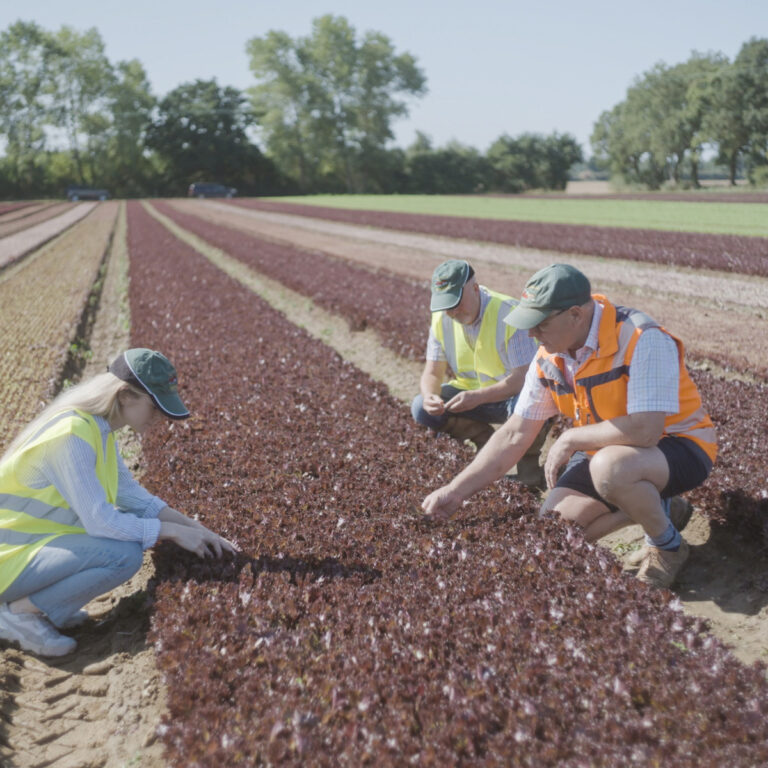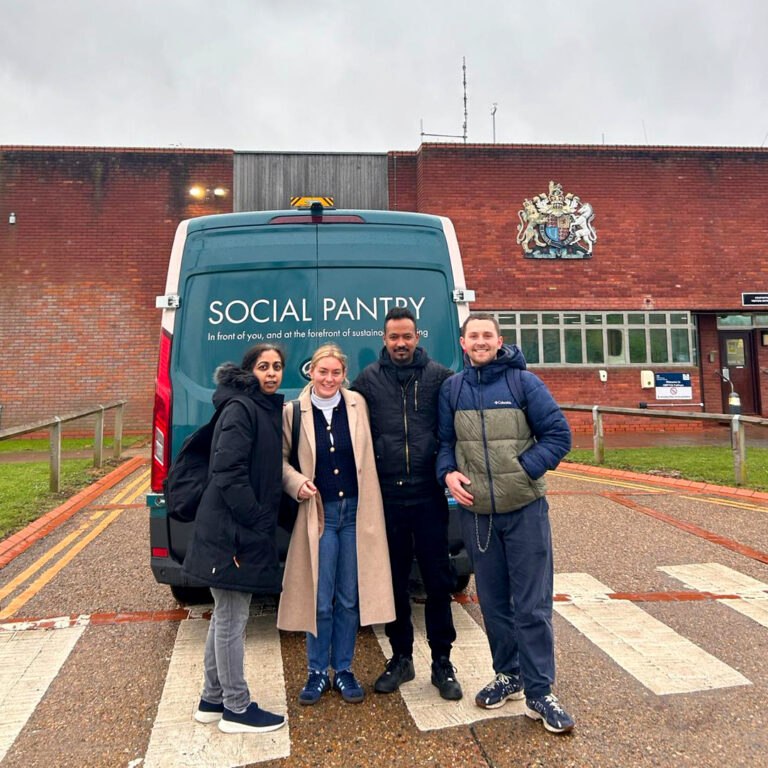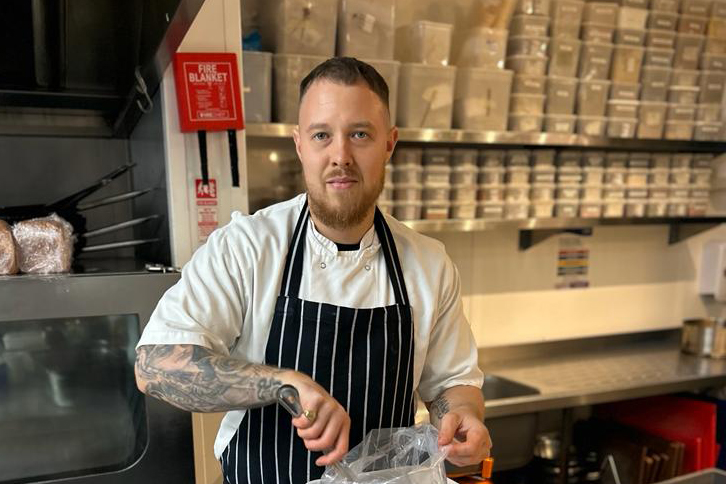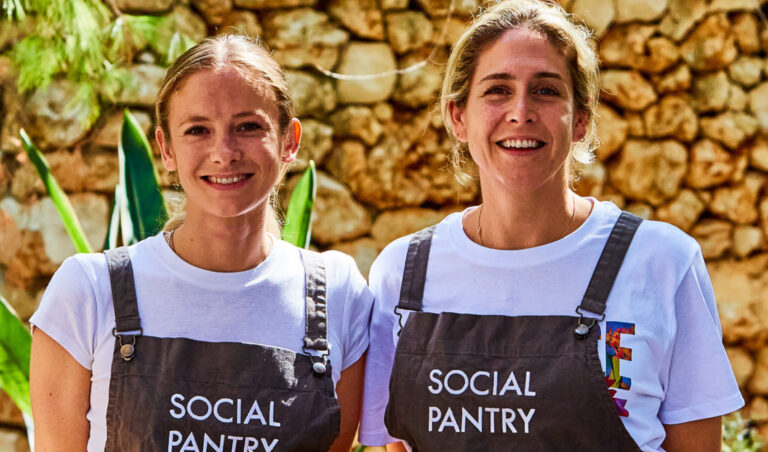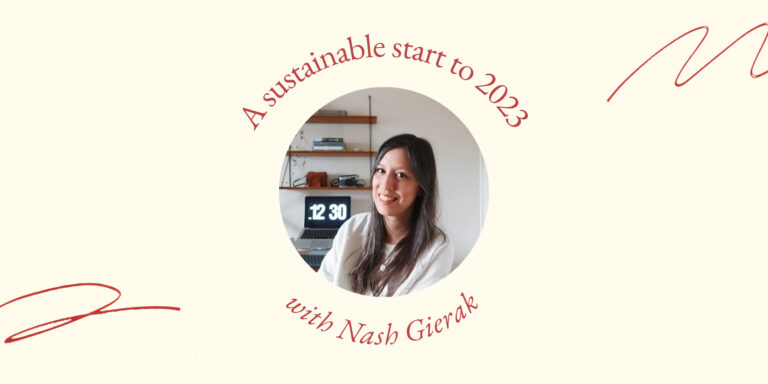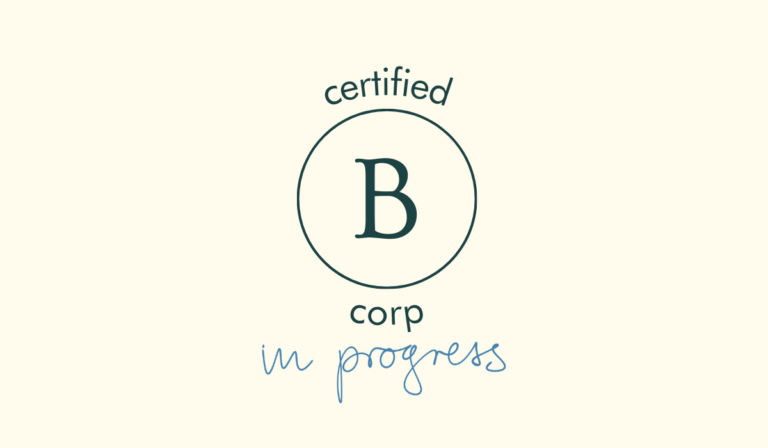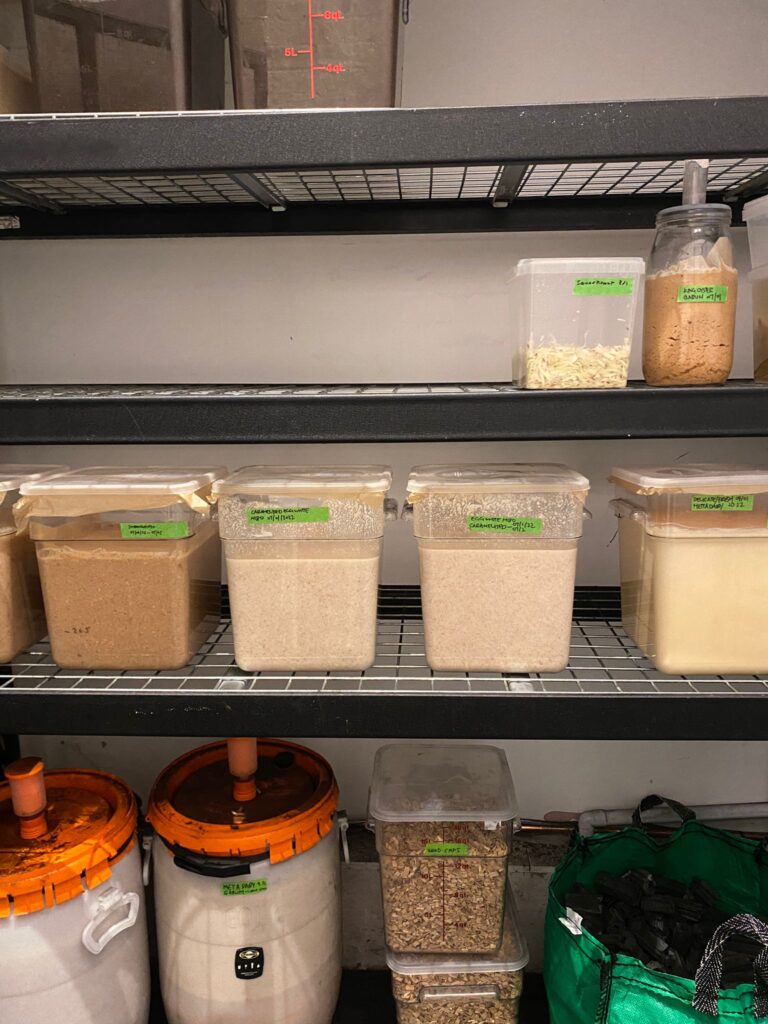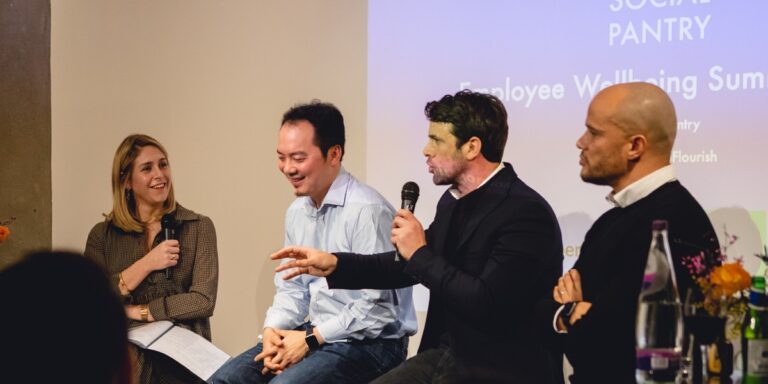Inside HMP Wandsworth
Published on: November 27, 2023
We are delighted to speak with Georgii Jackman, Strategic Remand Support Lead at HMP Wandsworth about what goes on behind the scenes in prison and the integral work being done to ensure a smooth transition from life behind bars to life on the outside.

Tell us a bit about yourself and your role working within the prison system?
I am the Strategic Remand Support Lead at HMP Wandsworth, and the ultimate goal of my team is to help men who are on remand to become ‘work ready’. Ultimately prison leavers who go into employment are less likely to reoffend, so we need to do everything we can to support this. We work hand in hand with the Employment on Release team, who is lead by a Prison Employment Lead (PEL) who support sentenced men in the lead up to their release. Together we offer various support, such as setting up interviews with employers, CV writing sessions, mock interview sessions, and we also have employers come into the prison to hold skills and information sessions which can often lead to interviews and employment with them.
What interested or inspired you to work with young adults in prison?
So, I don’t work just with young adults, I will work with anyone who is willing to engage with me. However, even the ones that are not keen to engage initially I won’t give up on, and we will usually find a way to encourage them to start thinking about their future. Having said that working with young adults specifically in the justice system, however, has always been a passion of mine, and I have worked on various projects throughout my career in the prison service to try and improve outcomes for these young people. Often the young people I come across are charismatic, enthusiastic, and willing to try anything and so now being in a role where I can try and harness all that is incredibly rewarding.

What have you learned about this population by working with them, that you didn’t know before or someone might not know from the outside? What are some of the misconceptions about people in prison and how has your experience influenced your own thinking?
There is so much talent in prison, lots of people with skills and qualifications that haven’t been utilised. When I chat to a prisoner and I hear about their life and what they are passionate about, I try and think about the opportunities I have been lucky enough to have in my life and want to be able to facilitate them also getting those opportunities themselves.
What are some of the biggest challenges people face leaving prison?
I think for a lot of people leaving prison, there are the common challenges such a housing, break down in family relationships, not having support. But I think one of the biggest challenges that I have realised since starting in this role is about the stigma attached to having been in custody and how much this can affect an individual. Coming to prison has a serious effect on confidence and resilience. I am always chatting to prisoners about how to conduct themselves in an interview, and I am often told ‘But they wont even give me a chance once they know I’ve been in prison’. This makes me really sad to think that they assume they will be judged by what they have done, rather than who they are now and what they are saying in an interview. I completely appreciate that risk assessments may be needed for starting a new role with a criminal conviction, but I really try to build the confidence of the prisoners I work with to know that they are good enough.

Talk to us about the relationship between employment/unemployment and offending/re-offending. What are some of the cycles you’ve observed and how can we interrupt them?
Prison leavers who are in steady jobs after release are 9 percentage points less likely to commit further crimes, which helps to tackle the £18 billion annual cost of reoffending. Since the introduction of Prison Employment Leads across the prison estate, significant progress has been made seeing the number of ex-offenders who have been successfully steered into jobs within 6 months, more than doubling from 14% to 30% since April 2021.
Attitudes towards employing prison leavers has also drastically improved over the years and this is brilliant, but to keep the statistics rising, I think employers need to be sharing their success stories and advocating more. We are releasing 100s of men daily, which is an untapped resource that employers can utilise! Also, we need to see employers ensuring that they have specific policies drafted to support the needs of people joining their workforce who have been in custody. I believe active support for people leaving prison is the key to success.

How do you work with employers who are interested in training and employing ex-offenders?
We work with a whole range of employers, varying in size and industry. Some employers are actively keen to get involved and often don’t need much support they just appreciate having referrals sent to them. For any employers who may be a little nervous about recruiting prison leavers, we work with a brilliant group of partner agencies and charities who support people leaving prison. They will work with them whilst in custody and will continue working with them after their release. They also wont just work with the individual they can also support the employer too. We also have a lot of resources that we can provide employers with how to approach recruiting prison leavers.
How can an employer get involved in working with ex-offenders? Where should they begin?
Any employer can register on the New Futures Network website to get more information and the majority of the Prison Employment Leads are on LinkedIn so can be contacted through there.
What are some of the unique needs of ex-offenders that employers need to consider in order to make the relationship successful, and their workplace as accessible, equitable and inclusive as possible?
Prison leavers who have been in custody after serving a custodial sentence will often be supervised by probation after they are released. This means that they may have weekly appointments with their probation officer, so this is something for employers to bear in mind and make reasonable adjustments where possible, to enable them to attend these. Also coming out of prison is a serious adjustment for some people and going from a world where it is highly structured to a place where the individual is entirely responsible for the structure of their day can be overwhelming. Although there is not a specific way that this can be resolved, it is a matter of time, and some will adjust quicker than others, but just for employers to have an appreciation for this will go a long way.

At Social Pantry, we have seen prison leavers respond really well to the highly structured nature of work in a catering kitchen; what characteristics of the hospitality industry are particularly well suited to people leaving prison?
Hospitality is a great industry for prison leavers, it is incredibly varied in terms of the roles available, the working patterns and the diversity of the people within the industry. I think having an active role that keeps individuals busy and where each day can be different but still highly structured is very appealing. There is also so much room for development and growth within the industry, which gives individuals something to work towards.
What are you (and your team) hoping to achieve in the next year? Well, it’s simple, to get even more people into employment after leaving prison, and to engage with more and more employers.
If you had one piece of advice for employers interested in working with the prison population, what would it be?
It would be to ask themselves, why not? – We have such a large population of prisoners who are eager to learn and work hard. No not every person leaving prison will be the ideal candidate for you, but the employment teams in prison work incredibly hard to find you a great candidate. Who knows they could be the employee you’ve been searching for! And please get in touch if you would like to know more!







